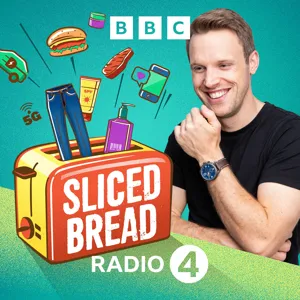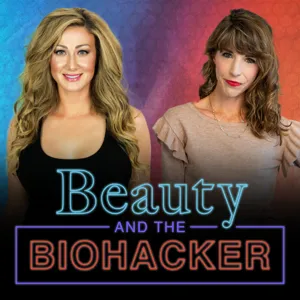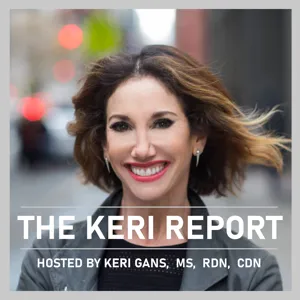Podcast Summary
Exploring LinkedIn for Hiring and Sun Protection Tips: LinkedIn is a powerful hiring tool, reaching 70% of users not on other job sites. For sun protection, understand UVA, UVB, SPF, and star ratings to ensure effective use.
LinkedIn is a valuable resource for hiring professionals, especially those who aren't actively looking for a new job. With over 70% of LinkedIn users not visiting other leading job sites, businesses risk missing out on great candidates if they don't post their jobs on LinkedIn. Additionally, sunscreen is an essential product for protecting our skin from harmful UV rays. However, it's crucial to understand the differences between UVA, UVB, SPF, and star ratings to ensure effective sun protection. Consumers can seek advice from experts like Antonia Mariconda, a beauty writer and founder of the Safety in Beauty campaign, to make informed decisions about safe products and treatments. It's never too late to start taking better care of our skin, and it's important to remember that past sun damage can lead to health concerns later in life. So, whether you're looking for a new professional opportunity or trying to protect your skin from the sun, remember to do your research and make informed choices.
Understanding Sunscreen Labels: Be informed about sunscreen labels, including UVA/UVB protection, SPF, water resistance, and reef-safety, to effectively protect your skin and marine ecosystems.
Understanding the labels on sunscreen bottles is crucial for effective sun protection. There are common sources of confusion, such as the differences between UVA, UVB, and SPF, as well as the meaning of terms like "water resistant" and "mineral." Dr. Andrew Birney, a dermatologist, emphasized the importance of sunscreen and clarified some common misconceptions. He noted that UVB rays cause burning, while UVA rays contribute to aging and skin damage. Sunscreen with a high SPF protects against both types of UV rays. Water resistance refers to how long the sunscreen remains effective while in contact with water. Dr. Birney also mentioned that reef-safe sunscreens are important for protecting marine ecosystems. He created his own sunscreen brand, Ultra West, with the goal of reducing skin cancer incidence and making high-quality sunscreen affordable. While he has a vested interest, his primary role is to share his expertise as a consultant dermatologist. Overall, the key message is to be informed about sunscreen labels and to use sunscreen regularly as part of a comprehensive approach to sun protection.
UVB and UVA: Causes of Sunburn and Skin Damage: UVB causes sunburn and skin cancer, while UVA contributes to wrinkles, aging, and skin cancer. SPF numbers indicate sunburn protection, but regular application and consistent UV intensity are crucial.
UVB rays, which have more energy, are the primary cause of sunburn and have a stronger link to skin cancer. UVA rays, which have longer wavelengths and penetrate deeper into the skin, contribute to wrinkles, photoaging, and also play a role in skin cancer development. UVB does not pass through glass, but UVA can. Sunscreen labels with SPF numbers indicate how long you can stay in the sun before getting burned, with SPF 30 offering double the protection of SPF 15 by blocking a greater percentage of UVB rays. However, it's important to note that these calculations assume consistent UV intensity and regular sunscreen application.
Understanding UVA and UVB Protection in Sunscreens: Look for broad spectrum sunscreens with UVA and UVB protection. The European Union's Kite Mark with a UVA circle and star rating system can help ensure this. However, remember that a higher star rating doesn't always mean better overall protection.
When choosing a sunscreen, it's important to look for broad spectrum protection, which means it shields against both UVA and UVB rays. UVA rays can cause aging and skin damage, even when you don't feel burned. The European Union's Kite Mark with a UVA circle and the star rating system are two ways to ensure broad spectrum protection. However, the star rating is a ratio of UVA to UVB protection, not an absolute measure. Therefore, a sunscreen with a lower SPF but more UVA stars may provide better overall protection than one with a higher SPF and fewer UVA stars. Consumers often mistakenly assume a higher star rating means better overall protection, but it's essential to understand the context of the rating system.
People with different skin tones need varying application amounts of sunscreen for the same SPF: Individuals with darker skin require less sunscreen for the same SPF due to longer MED, but all skin types should use broad-spectrum SPF 30 or 50 for UVA and UVB protection to prevent skin damage and cancer.
While the sun protection factor (SPF) may provide the same level of protection for individuals with different skin tones, the length of time before burning varies significantly. People with darker skin have a longer time before burning, which affects the Minimal Erythema Dose (MED). Therefore, while the factor of protection remains the same, the initial figure for application differs. For instance, someone with very dark skin may need only SPF 13 to protect them for a longer period compared to someone with very fair skin who would need a higher SPF for the same amount of protection. It's essential to understand that people with darker skin can still get skin cancer, and using sunscreen is necessary to prevent both skin damage and aging. When purchasing sunscreen, look for a broad-spectrum SPF 30 or 50, labeled as UVA and UVB protection, and either a circle or 4 or 5 stars indicating UVA protection. Mineral sunscreens, which contain zinc oxide or titanium dioxide, work by reflecting or scattering UV rays, while organic or chemical sunscreens convert UV energy into heat and lose it. Both types have their advantages and are often blended in sunscreens.
Understanding the Meaning of Organic, Reef Safe, and Water Resistant in Sunscreens: Organic in sunscreens refers to carbon rings, not environmental friendliness. Reef safe is a marketing term, high concentrations of certain ingredients may harm corals. Water resistant means sunscreen can last in water, but reapply after toweling off.
While the terms "organic," "reef safe," and "water resistant" may have certain connotations for consumers, their actual meanings and implications can be more complex. "Organic" in the context of sunscreens refers to the presence of carbon rings in the product's organic chemistry, not necessarily environmental friendliness. "Reef safe" is often used as a marketing tool, but high concentrations of certain sunscreen ingredients, such as octinoxate and oxybenzone, may contribute to coral bleaching. "Water resistant" means the sunscreen can withstand water exposure for a certain period, but it should be applied well before swimming and reapplied after toweling off to ensure effective protection. Consumers should be aware of these nuances to make informed decisions about their sunscreen choices.
Water resistance in sunscreen can be misleading: Sunscreen labeled as water resistant only maintains 50% SPF after water exposure, reapply every 2 hours or after swimming/sweating for proper protection.
Sunscreen labels can be misleading, especially when it comes to the terms "water resistant" and "all-day protection." According to the discussion, a sunscreen is considered water resistant if it maintains at least 50% of its SPF protection after being exposed to water and not towel-dried. However, many people may assume that sunscreen is waterproof and rely on it to last all day without reapplication. This false sense of security can lead to sunburns. Furthermore, the ability to apply perfect sunscreen coverage evenly on one's body is challenging, and missing even a small area can result in sun damage. To ensure proper sun protection, it's recommended to use enough sunscreen to make your skin look white before rubbing it in, and to reapply every two hours or immediately after swimming or sweating. Cheaper sunscreen brands can still provide equal protection as more expensive ones, and it's essential to look beyond marketing claims to determine the actual quality of the sunscreen.
Protecting Skin from Sun: Focus on Broad-Spectrum Sunscreens, UVA Protection, and Year-Round Application: Focus on broad-spectrum sunscreens with SPF 30 or 50, look for UVA protection, apply 20 minutes before sun exposure, wear hats and clothes, reapply after sweating or swimming, and apply year-round for regular sun exposure
When it comes to protecting your skin from the sun, focusing on broad-spectrum sunscreens with an SPF of 30 or 50, and looking for UVA protection indicated by a 4 or 5-star rating or a UVA circle, is key. Myths like being able to get a sunburn only on sunny days or that tanning beds are safe have been debunked. A tan is actually a sign of skin damage, and while it provides some protection, it's your body's response to damage, not a preventative measure. To ensure adequate protection, apply sunscreen 20 minutes before going outside, wear a hat and clothes, and reapply after sweating or swimming. Sunscreen application is recommended year-round for those with regular sun exposure. Additionally, be wary of sunscreen claims on social media and send any questionable products our way for investigation. Remember, sunscreen is an essential part of maintaining healthy skin.
Shopify: Growing Businesses and 1800flowers.com: Delivering Happiness: Shopify helps businesses grow online and offline with a top-converting checkout, while 1800flowers.com delivers happiness through thoughtfully sourced gifts. Both prioritize care, safety, and growth.
Shopify and 1800flowers.com offer solutions to help businesses grow and deliver happiness, respectively. Shopify is a global commerce platform that assists businesses in selling online and offline, from their initial stages to significant growth. It boasts the Internet's best converting checkout, making it 36% more effective than other leading commerce platforms. Shopify provides a one-month trial for $1 at shopify.com/work. Meanwhile, 1800flowers.com goes beyond being a gift-giving destination. They put heart into everything they do, ensuring that all their products are made with love and care. From farmers, bakers, florists, and makers, they deliver smiles for various life occasions. To learn more, visit 1800flowers.com/acast. Antonio Mariconda, the founder of the Safety in Beauty Campaign, and Dr. Andrew Birney, a consultant dermatologist at East Kent Hospital University NHS Foundation Trust, emphasized the importance of safety and care in their respective industries. Antonio advocated for safer beauty products, while Dr. Birney shared insights on skin health and safety. In essence, whether it's growing a business or delivering happiness through gifts, the importance of care, safety, and growth was a recurring theme throughout the discussion.





